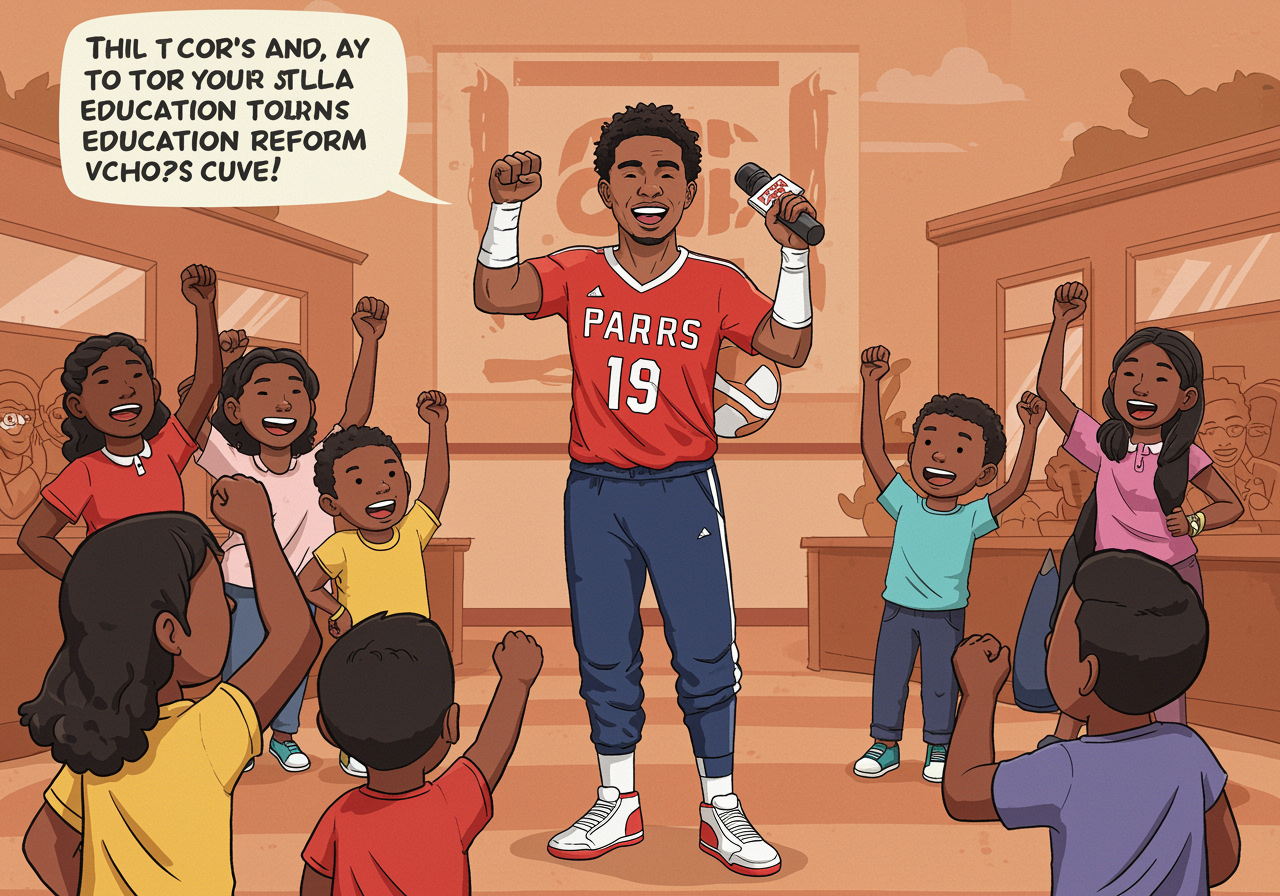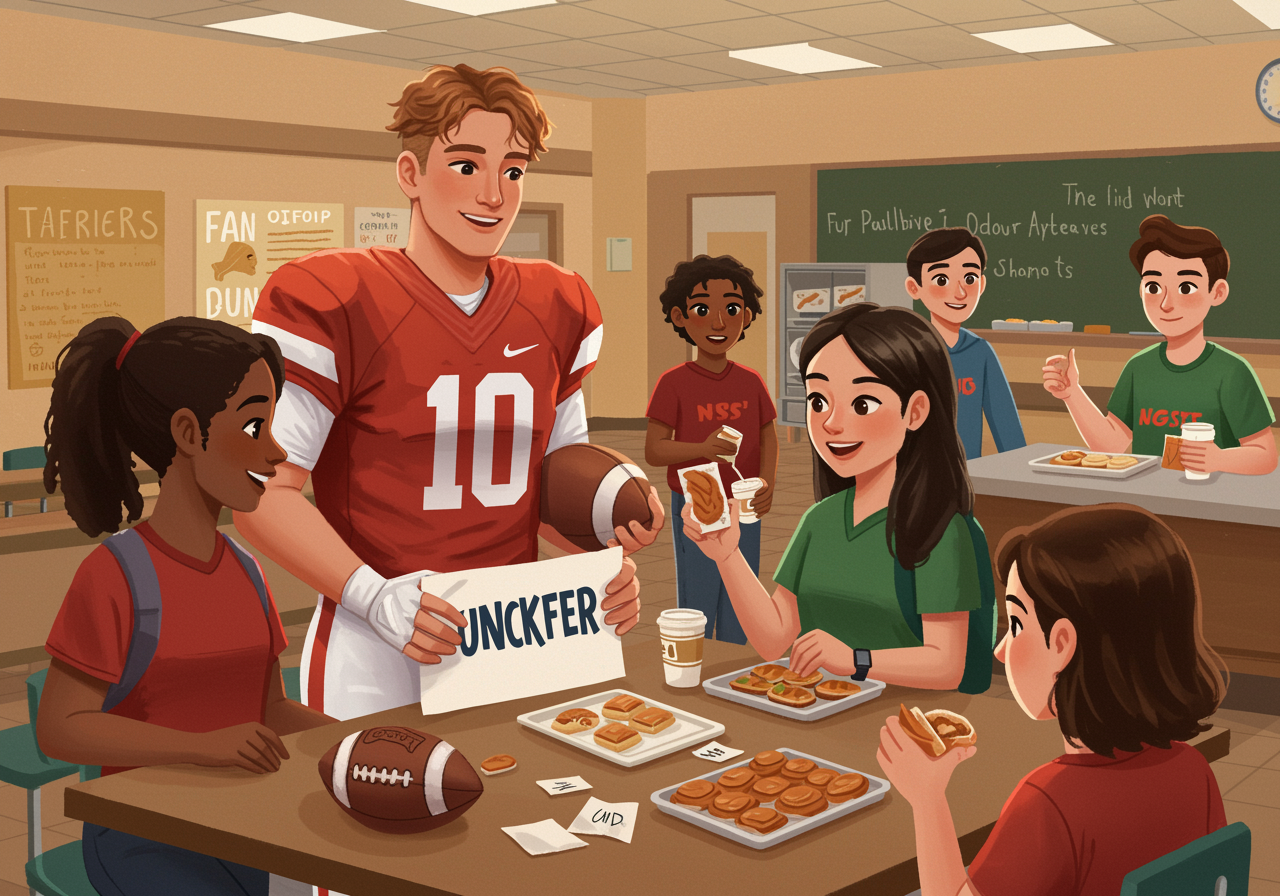Game Changers: When Athletes Become Superheroes for Their Communities
Discover how sports stars use their fame to tackle real-world problems and inspire others to join the action
Explore how your favorite athletes are scoring big wins both on and off the field by using their spotlight to create positive change in communities around the world.
Overview
When your teen's favorite basketball player speaks out about education or a soccer star fights hunger, they're seeing something powerful in action. Athletes have millions of followers hanging on their every word, and many use this incredible influence to tackle problems that matter. Talking about athlete activism helps kids understand how anyone with a voice—including them—can make a difference. It's also a great way to discuss important issues through the lens of sports heroes they already admire.

Understand in 30 Seconds
Get up to speed quickly
- Platform Power: Athletes have huge followings on social media and in the news, giving them a megaphone to share important messages with millions of people.
- Beyond the Game: Many athletes care deeply about issues like education, hunger, equality, and justice, using their fame to bring attention to these problems.
- Real Impact: When athletes speak up, they can change laws, raise money for causes, and inspire fans to take action in their own communities.
- Role Model Reality: Young people often look up to athletes, so when sports stars promote positive change, it encourages the next generation to get involved too.
Real Life Scenario
Situations you can relate to
Imagine your school's star quarterback notices that some teammates can't afford lunch every day. Instead of just buying them food, what if they started a fundraiser and got the whole school involved? That's exactly what many professional athletes do, but on a much bigger scale. Think about LeBron James—he didn't just donate money to education. He built an entire school for kids in his hometown who needed extra support. Or consider how soccer player Marcus Rashford used his huge following to convince the government to provide free meals for kids during school breaks. These athletes saw problems in their communities and thought, 'I have influence, so how can I use it to help?' They turned their fame into a force for good.

Role Play
Spark a conversation with “what if” scenarios
What if you were a famous athlete with 10 million social media followers?
- Role play: Pick a problem in your community (like lack of youth programs or environmental issues) and brainstorm how you'd use your platform to address it. Create a mock social media campaign together.
What if a reporter asked you about a controversial issue after winning a big game?
- Role play: Practice responding thoughtfully to tough questions, discussing how athletes balance speaking their minds with their role as entertainers.
What if you wanted to start a charity but weren't sure how to begin?
- Role play: Role-play meeting with community leaders, researching the issue, and planning how to make the biggest impact with your resources.
FAQs
Frequently asked questions people want to know
Should athletes stick to sports and stay out of politics?
Athletes are citizens too, with the same rights to express their views as anyone else. Many feel they have a responsibility to use their platform for good since they have such influence.
Do athletes actually make a difference, or is it just for show?
Many athletes create real, measurable change through their activism—building schools, changing laws, raising millions for charity, and inspiring others to take action.
What if people disagree with what an athlete says?
That's normal! Speaking up about important issues often creates debate, which can actually be healthy for society. Athletes know they might face criticism but choose to speak up anyway.
Examples in the Wild
See how this works day to day
- LeBron James opened the 'I Promise School' in Akron, Ohio, providing education, meals, and support services for at-risk students in his hometown (ESPN Education Initiative Reports)
- Marcus Rashford's campaign convinced the UK government to extend free school meal programs, helping feed over 1.3 million children during the pandemic (BBC News Social Impact Coverage)
- Serena Williams advocates for maternal health equality after her own pregnancy complications, working to improve care for women of color (CNN Health and Wellness Reports)
- Colin Kaepernick's kneeling protest sparked nationwide conversations about police brutality and racial justice in America (Associated Press Sports and Society Coverage)
In Summary
What you should know before you start
- Athletes have massive platforms that can reach millions of people instantly, making them powerful voices for change
- Many sports stars use their influence to address real problems like education, hunger, inequality, and social justice
- When athletes speak up, they can inspire fans to get involved and create ripple effects that lead to actual policy changes
- Athlete activism shows young people that having a voice and using it responsibly is part of being a good citizen
Pro-tip for Parents
You got this!
If your teen disagrees with an athlete's stance on an issue, use it as a learning opportunity rather than shutting down the conversation. Ask questions like 'What do you think about their approach?' or 'How would you handle it differently?' This helps them think critically about both the issue and how people can use their influence responsibly, even when we don't always agree with the message.

Keep an Eye Out For
Find these examples in everyday life
- Watch for athletes speaking at community events or starting new charitable initiatives in your area
- Notice when sports figures comment on current events or social issues—these are great conversation starters
- Look for stories about athletes giving back to their hometowns or supporting causes related to their sport
Explore Beyond
Look up these related research topics
- How social media has changed the way public figures can influence society
- The history of athlete activism from Muhammad Ali to today's stars
- How young people can find their own voice and platform to create change in their communities